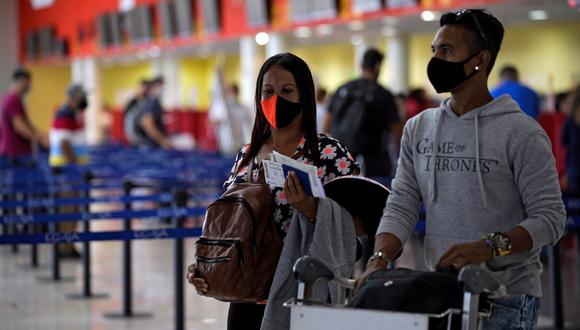Havana, Cuba: Cuba began today the application of a new sanitary protocol for international travelers with a view to reopening its borders, which includes the elimination of mandatory quarantine.
According to Prensa Latina, from this Sunday those who arrive in the Caribbean nation will not have to isolate themselves for a period of time pending the results of the Covid-19 diagnosis, a step prior to other measures that will be implemented from the next 15 November.
On that date, the country will once again receive passengers at all its air terminals, in which around 400 weekly flights are expected; in addition to allowing the permanence of pleasure boats in its territorial waters.
The new protocol will eliminate the polymerase chain reaction test (RT-PCR) upon entering the border, in addition to establishing the presentation of the health passport or vaccination certificate for all international travelers, Cubans or foreigners.
Those who do not have this document must carry a Covid-19 negative RT-PCR certification upon arrival, carried out 72 hours before traveling in a certified laboratory in the country of origin.
In recent press conferences, the authorities of Health and the Ministries of Transport and Tourism confirmed that they will maintain epidemiological surveillance in all ports, marinas and airports; while in the latter the taking of samples for diagnosis will be carried out randomly.
In the particular case of Cuban travelers residing on the island, they must report to the family doctor’s office or community health area within 48 hours of arrival.
The implemented measures contribute to facilitating entry into the national territory at a time when it is intended to promote tourist activity, as part of the economic recovery.
The leisure industry is one of the main sources of foreign exchange for the Caribbean nation, in addition to fostering links with the national industry and agriculture and the private sector.
Cuba needs to take advantage of the months of November and December, which are usually part of the so-called high season for tourism, to provide liquidity to an economy that decreased 10.9 percent last year.

